| Srl | Item |
| 1 |
ID:
166865
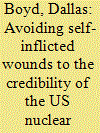

|
|
|
|
|
| Summary/Abstract |
Nuclear deterrence requires not only the reliability of a state’s strategic weapons and the willingness of its leaders to employ them but also an adversary’s appreciation of these conditions. Weapons perceived as failing to hold their targets at risk may lack deterrent value, just as retaliatory threats that are not believable may fail to deter, even if a state’s operational capabilities are robust. Both the technical and political credibility of the US nuclear deterrent may have suffered self-inflicted harm since the end of the Cold War, often as casualties of intemperate policy debates. In particular, doubts have been sowed about the reliability of aging US warheads under a science-based stockpile-stewardship regime meant to substitute for nuclear-explosive testing. Likewise, the credibility of US deterrent threats may have waned as American leaders have spoken ever more stridently about the horrors of nuclear war and nuclear terrorism, underscoring their extreme aversion to the risk of nuclear attack. Diminished credibility in both spheres threatens to compromise US national-security objectives ranging from nuclear nonproliferation to the outcomes of nuclear crises.
|
|
|
|
|
|
|
|
|
|
|
|
|
|
|
|
| 2 |
ID:
099789
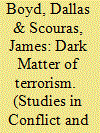

|
|
|
|
|
| Publication |
2010.
|
| Summary/Abstract |
The consequences of states' reactions to terrorist attacks can far outweigh the effects of the attacks themselves. Yet risk analysis, widely accepted as the proper analytical basis for assessing terrorist threats, largely ignores the consequences from potential reactions to attacks. It also generally fails to consider how the anticipation of these reactions may influence terrorists' attack preferences. Policymakers should therefore be wary of the limitations of risk analysis as currently practiced. Further, states should strive to avoid reactions to attacks that unwittingly further their adversaries' agendas, a goal that may be aided by strengthening public resilience to terrorism.
|
|
|
|
|
|
|
|
|
|
|
|
|
|
|
|
| 3 |
ID:
123123
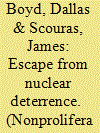

|
|
|
|
|
| Publication |
2013.
|
| Summary/Abstract |
Since the post-World War II genesis of nuclear deterrence, two presidential initiatives have been presented to deliver humanity from the threat of its failure. The first was the Strategic Defense Initiative (SDI), a constellation of space- and ground-based systems that President Ronald Reagan envisioned would render nuclear weapons "impotent and obsolete." The second is President Barack Obama's roadmap to "a world without nuclear weapons," commonly referred to as "Global Zero." While these proposals appear to have little in common, deeper investigation reveals a number of provocative similarities in motivation and presentation. Moreover, both generated fierce debate, often with ideological overtones, about their strategic desirability and technical feasibility. We use these parallels, as well as prominent dissimilarities, to draw lessons from the SDI experience that can be applied to the debate over Global Zero.
|
|
|
|
|
|
|
|
|
|
|
|
|
|
|
|
| 4 |
ID:
181597
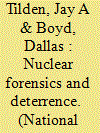

|
|
|
|
|
| Summary/Abstract |
First developed for nuclear test monitoring and treaty verification purposes during the Cold War, modern nuclear forensic capabilities are now used to determine the provenance of nuclear materials found outside of regulatory control, such as those seized from nuclear smugglers.
|
|
|
|
|
|
|
|
|
|
|
|
|
|
|
|
| 5 |
ID:
090341
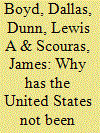

|
|
|